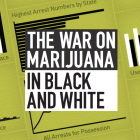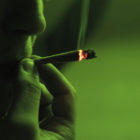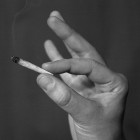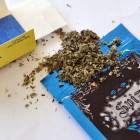
A report released by the American Civil Liberties Union (ACLU) earlier this week found that in 2010, African-Americans were approximately four times more likely than whites to be arrested for marijuana possession -- this, despite that fact that national data indicates the two populations use marijuana at nearly the same rates. Furthermore, in several states, including Illinois, Iowa and Minnesota, the ACLU said African-Americans were busted for pot at rates from 7.5 to 8 times higher than whites. Regardless of region, the ACLU reports that these discrepancies in arrest rate by race remain consistent. “In over 96 percent of counties with more than 30,000 people in which at least 2 percent of the residents are black,” the report reads, “blacks are arrested at higher rates than whites for marijuana possession.”
Overall, New York, Texas, California, Florida and Illinois were found to have the highest rates of marijuana possession arrests. In almost half of all states, the ACLU found that possession offenses accounted for more than 90 percent of marijuana arrests.









